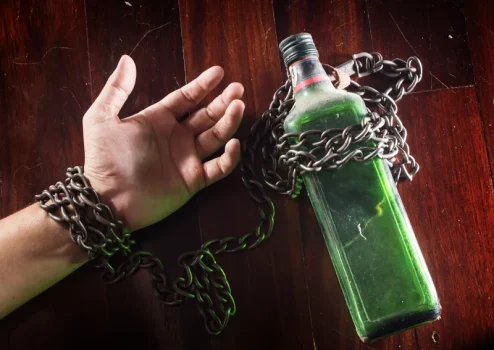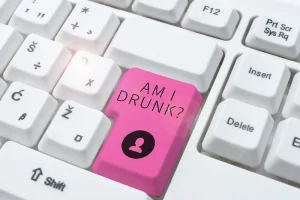
Setting boundaries with these people can help remove the possibility of being triggered or pressured to use drugs or drink again. The person in recovery will also need to set boundaries for themselves, for places they will not go to or events they won’t attend. This could mean places where there will be heavy exposure to drugs and alcohol or places they frequented during active addiction. Below are some common internal and external triggers that you may face after leaving a recovery center. It is important to note that these are not all the possible triggers you could face.

Reach out now and join our supportive
By developing adaptive coping skills and practicing self-care during transitions, you can continue on your path to recovery and avoid setbacks. The mental relapse stage of addiction relapse is characterized by a return to specific thought patterns that can lead to a relapse. This includes thinking about using drugs or alcohol, fantasizing about the euphoric effects of an intoxicant, and planning how and when it could be used without getting caught.
What are Addiction Relapse Triggers?
This specialized attention can go a long way in helping people in recovery identify their triggers and learn how to prevent further addiction. Additionally, it is beneficial to set clear and healthy boundaries with individuals in your network who still use drugs or alcohol. Emotional triggers are emotional states that can lead to relapse in recovery.
What is Addiction Part 4: Identifying Triggers for Substance Use

The information we provide is not intended to be a substitute for professional medical advice, diagnosis or treatment. It should not be used in place of the advice of your physician or other qualified healthcare providers. When it comes to external triggers, active avoidance of certain places, breaking ties with specific individuals, and taking other conscious steps to limit exposure are advised.
Social Media
In fact, addiction models usually need to include elements from different models in order to provide a satisfactory explanation of the disease. Engaging in physical activity such as jogging or going for a walk can be beneficial for releasing tension and clearing the mind. For those who prefer more creative outlets, it may be helpful to take art or music therapy to express emotions without relying on substances. In rats and humans, the hormone corticosterone increases the level of dopamine, a brain chemical that plays a major role in reward-seeking behavior, in the brain in response to stress. Cocaine and several other illicit drugs also boost levels of dopamine. The Marquette researchers stated a stressed animal previously exposed to cocaine will crave the drug because the dopamine surge from cocaine trumps the release of stress-related dopamine.

The mental part of relapse can be difficult to recognize at first and can often lead to physical relapse, so it is vital to recognize the signs early and take the necessary steps to prevent that from happening. A trigger diary can also help uncover underlying causes of use or cravings, including underlying emotions and environmental events that may https://ecosoberhouse.com/ lead to substance abuse. Furthermore, a trigger diary can allow people in recovery to recognize patterns in their behaviors and develop more effective coping strategies for future situations. Addiction relapse triggers can be categorized as internal or external. Internal triggers originate from within oneself, often linked to emotional factors.
Common External Relapse Triggers
- An external trigger is a person, place, or thing that brings back an intense memory of drug use.
- A way to manage these external triggers is to have a support system of friends and family members who are encouraging and help you address challenges that come your way.
- Remember, the road to recovery may be challenging, but with dedication, perseverance, and the right tools, you can overcome these obstacles and build a brighter future.
- Others turned to substance use because of boredom or to enhance pleasurable experiences.
You, nor your loved one, are under any obligation to commit to a Legacy Healing Center treatment program when calling the helpline. If you feel that any of our content is inaccurate, out-of-date, or otherwise questionable, please contact at At this critical initial stage, it can be important to ensure that internal vs external triggers you continue certain treatment aspects, such as counseling and communicating with recovery experts. If you are newly in recovery, you may want to consider an outpatient program for your first few months into sobriety. Our team is available 24 hours a day, 7 days a week to answer any questions you may have.
- And these might include alcohol, pills, marijuana, any drugs at all that you’ve used, even if they’re not your preferred substance.
- When asking what are triggers in addiction, you also have to consider the triggers that impact mental health.
- For other people’s self-consciousness takes over when they’re in a social situation, leading them to worry what others will think of them if they do not drink or use.
- BetterHelp can connect you to an addiction and mental health counselor.
It’s important to recognize when your thoughts are leading in a direction that could make sobriety more difficult. Triggers can be powerful because they are linked to intense emotional needs. They often arise when a person feels a need for acceptance, security, or control. When stress levels rise, the brain’s prefrontal cortex, responsible for cognitive control and stress regulation, is inhibited, making it harder to manage impulses and make informed decisions.



Leave a Comment